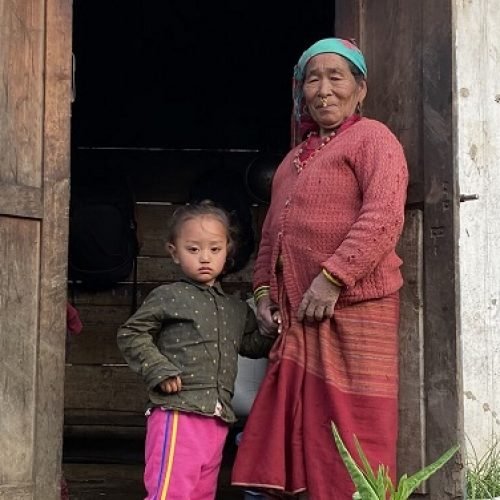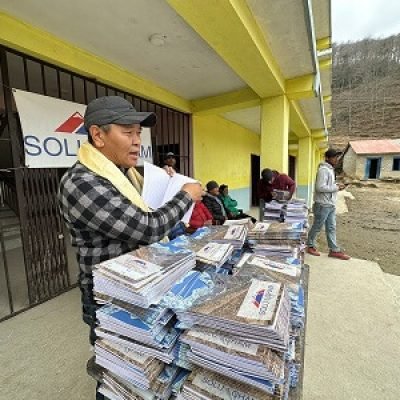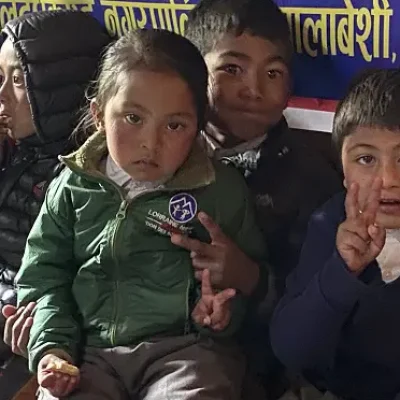Child and vulnerable Adult Protection Policy
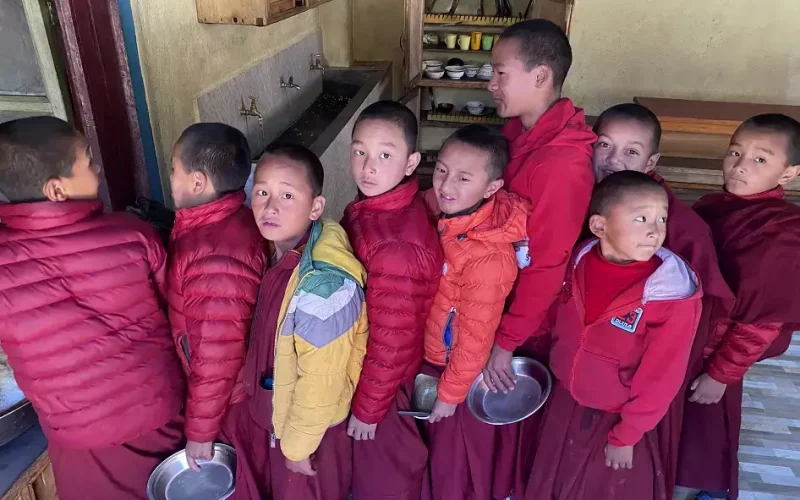
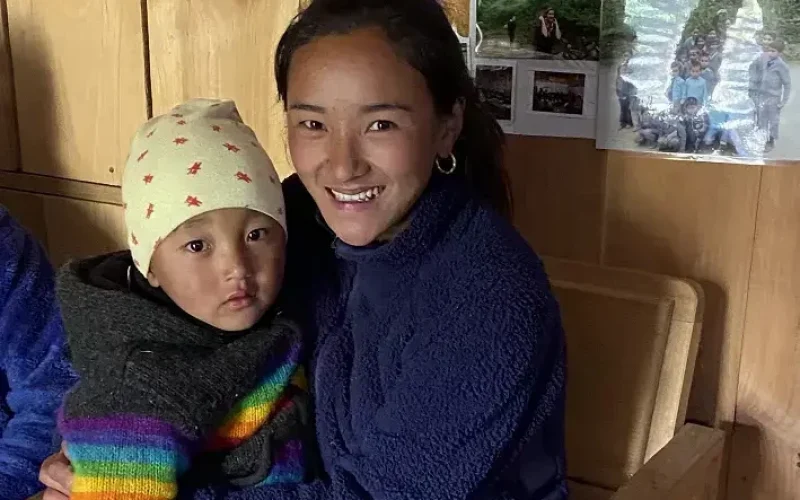
Details
READING TIME
8 min
CATEGORY
Policies
AUTHOR
Pierre Houé
TOPIC
Child protection
Child & Vulnerable Adult Protection Policy
All children and vulnerable adults have a right to protection, and the needs of disabled children and
others who may be particularly vulnerable must be taken into account.
Solu ^ Cham will ensure the safety and protection of all children and vulnerable adults involved in a Solu ^ Cham venture.
A child is defined as a person under the age of 18 (The Children Act 1989).
There are three potential interactions with children and/or vulnerable people on all Solu ^ Cham Ventures :
Solu^Cham Staff interacting with child and/or vulnerable volunteers.
Volunteers interacting with child and/or vulnerable volunteers.
Solu^Cham Staff and volunteers interacting with local children.
PROMOTING GOOD PRACTICE
STRONG MEASURES
Policy aims
The aim of this Child and Vulnerable Adult Protection Policy is to promote good practice and set guidelines for those working with children and/or vulnerable people: Providing children and young people with appropriate safety and protection whilst in the care of Adventure Alternative Allow all staff/volunteers to make informed and confident responses to specific child protection issues.
Promoting good practice
Child abuse, particularly sexual abuse, can arouse strong emotions in those facing such a situation. It is important to understand these feelings and not allow them to interfere with your judgement about the appropriate action to take. Abuse can occur within many situations including the home, school and the sporting environment. Some individuals will actively seek employment or voluntary work with young people in order to harm them. A member of staff or volunteer will have regular contact with young people and be an important link in identifying cases where they need protection. All suspicious cases of poor practice should be reported following the guidelines in this document.
Good practice means:
• Always working in an open environment avoiding private or unobserved situations and encouraging opencommunication.
• Treating all young people/disabled adults equally with respect and dignity.
• Always putting the welfare of each young person first.
• Maintaining a safe and appropriate environment (e.g. it is not appropriate for staff or volunteers to have an intimate relationship with a child or to share a room with them).
• Building balanced relationships based on mutual trust and empowering children to share in decision making.
• Keeping up to date with technical skills, qualifications and insurance.
• Where possible to provide male and female members of staff. However, remember that same gender abuse can also occur
.
• Being an excellent role model – this includes not smoking or drinking alcohol in the company of young people.
• Giving enthusiastic and constructive feedback rather than negative criticism.
• Securing parental consent in writing to act in loco parentis, if the need arises to administer emergency first aid and/or other medical treatment.
• Keeping a written record of any injury that occurs, along with the details of any treatment given.
Practices never to be accepted
The following should never be accepted:.
• Engage in rough physical or sexually provocative games, including horseplay.
• Share a room with a child..
• Allow or engage in any form of inappropriate touching..
• Allow children to use inappropriate language unchallenged..
• Make sexually suggestive comments to a child, even in fun..
• Reduce a child to tears as a form of control..
• Allow allegations made by a child to go unchallenged, unrecorded or not acted upon..
• Do things of a personal nature for children or disabled adults that they can do for themselves..
• Invite or allow children to stay with you unsupervised...
NB It will not be necessary for staff or volunteers to do things of a personal nature for children, particularly if they are young
or are disabled. These tasks should only be carried out by professionals with the adequate skills and security checks.
Pre-departure Training
In addition to pre-selection checks, the safeguarding process includes training after recruitment to help staff and volunteers to:
- The volunteer requirements and responsibilities should be clarified.
- They should sign up to Solu ^ Cham Code of Conduct.
- Child protection procedures are explained and training needs are identified.
- Analyze their own practice against established good practice, and to ensure their practice is likely to protect them from false allegations.
- Recognize their responsibilities and report any concerns about suspected poor practice or possible abuse.
- Respond to concerns expressed by a child or young person.
- Work safely and effectively with children.
Pre-selection checks must include the following:
All volunteers/staff should complete an application form. The application form will elicit information about an applicant's past and a self-disclosure about any criminal record.. Two confidential references. These references must be taken up and confirmed through telephone contact. Evidence of identity should be provided (e.g. passport or driving licence with photo).
Recruitment and training of staff and volunteers
Solu^ Cham recognizes that anyone may have the potential to abuse children in some way and that all reasonable steps are taken to ensure unsuitable people are prevented from working with children.
Solucham requires all staff to:
- Attend good practice and child protection awareness training, to ensure their practice is exemplary and to facilitate the
development of a positive culture towards good practice and child protection.
- Receive advisory information outlining good practice and informing them about what to do if they have concerns about the
behavior of an adult towards a young person.
Incidents that must be reported/recorded
• If any of the following occur you should report this immediately to another volunteer and record the incident. You
should also ensure the parents of the child are informed:
• if you accidentally hurt a child and/or vulnerable person
• if he/she seems distressed in any manner
• if a child and/or vulnerable person appears to be sexually aroused by your actions
• if a child and/or vulnerable person misunderstands or misinterprets something you have done.
In case of incident / Do’s and Don’t
Undergo first aid training
Responding to allegations or suspicions
It is not the responsibility of anyone working in a paid or unpaid capacity, to decide whether or not child abuse has taken
place. However, there is a responsibility to act on any concerns through contact with the appropriate authorities.
Solu^ Cham will assure all staff/volunteers that it will fully support and protect anyone who in good faith reports his/her concern that a colleague/volunteer is, or may be, abusing a child.
Where there is a complaint against a member of staff there may be three types of investigation:
• a criminal investigation
• a child protection investigation
• a disciplinary or misconduct investigation.
The results of the police and child protection investigation may well influence the disciplinary investigation, but not
necessarily
Actions required
• 1. Concerns about poor practice:
If, following consideration, the allegation is clearly about poor practice, Solu^ Cham will deal with it as a misconduct issue.
If the allegation is about poor practice by Solu^ Cham or a Solu^ Cham member of staff, or if the matter has been handled inadequately and concerns remain, it should be reported to the relevant Solu^ Cham Manager who will decide how to deal with the allegation and whether or not to initiate disciplinary proceedings.
2. Concerns about suspected abuse:
Any suspicion that a child has been abused by either a member of staff or a volunteer should be reported to Solu^Cham, who will take such steps as considered necessary to ensure the safety of the child in question and any other child who may be at risk.
Solu^ Cham will refer the allegation to the local or international social services department which may involve the police, or go directly to the police if out-of-hours.
The parents of the child will be contacted as soon as possible following advice from the social services department.
If a Solu^ Cham member of staff is the subject of the suspicion/allegation, the report must be made to the appropriate Solu^Cham Manager.
3. Confidentiality
Every effort should be made to ensure that confidentiality is maintained for all concerned. Information should be handled and
disseminated on a need to know basis only.
This includes the following people:
- the parents of the person who is alleged to have been abused
- the person making the allegation
- social services/police
- Solucham staff members
- the alleged abuser (and parents if the alleged abuser is a child).
Seek social services advice on who should approach the alleged abuser
Information should be stored in a secure place with limited access to designated people, in line with data protection laws (e.g. that information is accurate, regularly updated, relevant and secure).
Internal enquiries and suspension
Solu^ Cham will make an immediate decision about whether any individual accused of abuse should be temporarily suspended pending further police and social services inquiries. Irrespective of the findings of the social services or police inquiries , Solu^ Cham will assess all individual cases to decide whether a member of staff or volunteer can be reinstated and how this can be sensitively handled. This may be a difficult decision, particularly where there is insufficient evidence to uphold any action by the police. In such cases, Solu ^ Cham must reach a decision based upon the available information, which could suggest that on a balance of probability, it is more likely than not that the allegation is true. The welfare of the child should remain of paramount importance throughout.
Our policies
Equality of Opportunities
Documents
Born at the foot of the Mont-Blanc, moving towards the foothills of Mount Everest. Solu^Cham aims at Connecting Mountain's People and Bringing sustainable development opportunities for the youth of Solu-Khumbu in Nepal.
